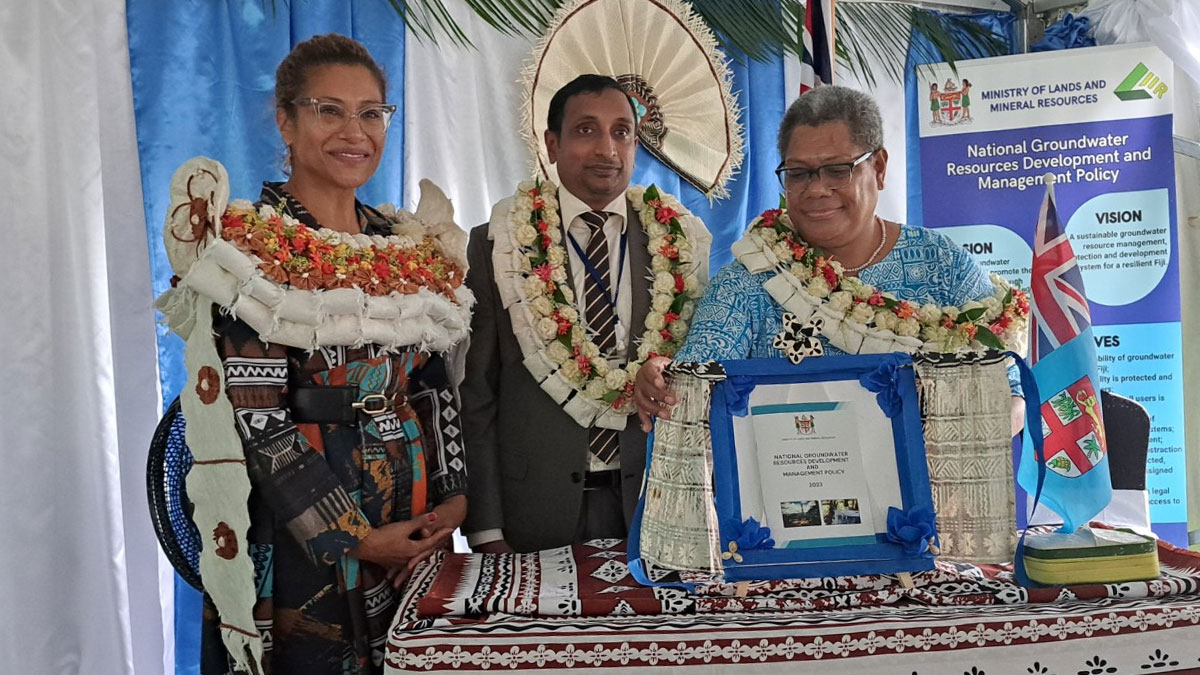
In a bid to safeguard groundwater resources and ensure its sustainability, the Groundwater Resources Development and Management Policy has been launched.
While launching the policy at the Department of Mineral Resources in Nabua, Minister for Women, Children and Social Protection, Lynda Tabuya says the launch of the policy represents hope for Fiji’s children, women, men and of course our people living in remote rural and maritime communities that face more challenges due to their geographical location.
She says the absence of proper management procedures and standardised abstraction rates, the security and sustainability of groundwater resources is a risk that requires these resources to be sustainably managed.
The Minister says the increased variability and intensity of natural disasters such as droughts, flooding, cyclone, and the imminent rise in sea level brought about by climate change, increases the chance of aquifers being contaminated, especially along coastal areas and small islands.
Tabuya says these issues call for stringent measures and monitoring systems to be put in place.
She says in rural and water-vulnerable communities, access to safe drinking water in adequate quantities is understood to be the responsibility for women as they are in charge for cooking, cleaning, and looking after the health of the family, especially the children and this policy will especially assist women in these remote locations.
Tabuya says women are reported to be the primary users of water within families, and they encounter greater difficulties in our rural and maritime locations, where water sources may be less reliable.
She says additionally, women, who are primarily responsible for sourcing water for their families, face increased challenges in water-scarce communities, where they may need to travel significant distances to fetch and transport water to their homes.
The Minister says the main users of water in rural communities, women, are particularly vulnerable to water-borne diseases and this directly impacts a woman's overall well-being, particularly her reproductive health, and is linked to higher rates of infant mortality and birth defects in rural areas so water can also be viewed as a tool that empowers women and enables them to pursue their aspirations and goals.
She says this policy aims to support women by ensuring the provision of sustainable, high-quality water in these rural and maritime regions.
Tabuya also highlighted that since the inception of the Groundwater Resources Assessment and Development Unit (under MRD) in 1967, the Department had drilled a total of over 1,000 boreholes around Fiji, which has benefitted over 2,800 households and total population of over 20,000.
She adds since 2015, Government undertook the initiative to reticulate groundwater from source to households, and so far assisted more than 1,500 households and ultimately, over 9,000 people have benefitted from this initiative.
Stay tuned for the latest news on our radio stations

